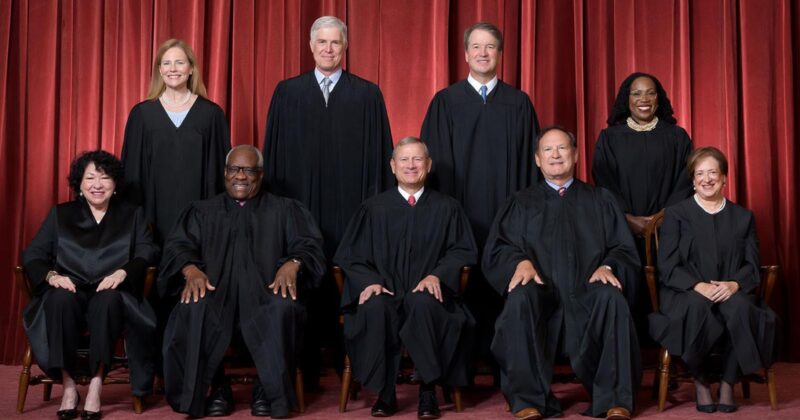In a ruling handed down Friday afternoon, the Supreme Court blocked President Donald Trump and his administration from deporting illegal immigrants who have been identified as being part of the violent Venezuelan Tren de Aragua gang from the country.
The unsigned order handed the case back to the Fifth Circuit Court of Appeals for further proceedings and stated, “The Government may remove the named plaintiffs or putative class members under other lawful authorities.” Dissenting were Justices Samuel Alito and Clarence Thomas.
The ruling stated that a District Court denied a motion for a temporary restraining order on April 17, and “hours later,” defendants were served notices of removal under the Act and told they would be moved “tonight or tomorrow.”
The order continued, “Evidence now in the record (although not all before us on April 18) suggests that the Government had in fact taken steps on the afternoon of April 18 toward removing detainees under the AEA—including transporting them from their detention facility to an airport and later returning them to the facility.
The court continued, citing the ongoing case regarding Kilmar Abrego Garcia,
“Had the detainees been removed from the United States to the custody of a foreign sovereign on April 19, the Government may have argued, as it has previously argued, that no US court had jurisdiction to order relief.”
The order later noted that “To be clear, we decide today only that the detainees are entitled to more notice than was given on April 18, and we grant temporary injunctive relief to preserve our jurisdiction while the question of what notice is due is adjudicated.”
“We did not on April 19—and do not now—address the underlying merits of the parties’ claims regarding the legality of removals under the AEA. We recognize the significance of the Government’s national security interests as well as the necessity that such interests be pursued in a manner consistent with the Constitution. In light of the foregoing, lower courts should address AEA cases expeditiously.”
In the dissent, Alito wrote, “I cannot join the decision of the Court. First and most important, we lack jurisdiction and therefore have no authority to issue any relief. Second, even if we had such authority, the applicants have not satisfied the requirements for the issuance of injunctive relief pending appellate review. Third, granting certiorari before any decision on the merits has been made by either the District Court or the Court of Appeals is unwarranted.”

